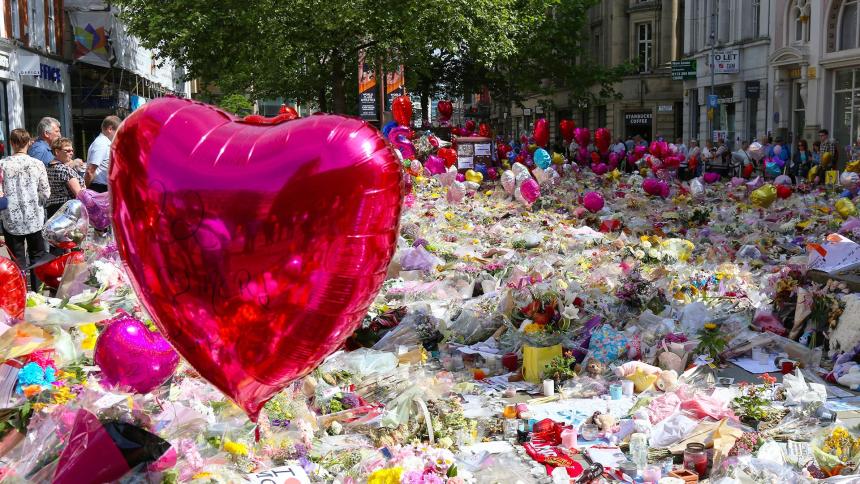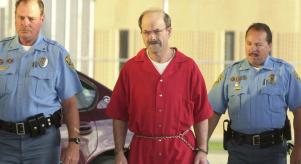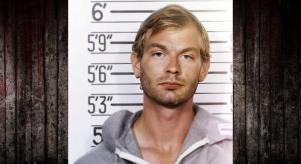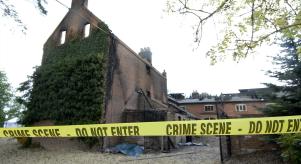
Britain’s most shocking bomb attacks
Over the decades, Britain has been the victim of several terrorist bombings – from those that target ordinary members of the public to an aggressive attempt to assassinate the prime minister.
The Manchester Arena bombing
On 22nd May 2017, over 14,200 people streamed into the Manchester Arena for what should have been one of the best nights of the year: a spectacular show by American superstar Ariana Grande. As they enjoyed the concert, a figure carrying a large rucksack was seen wandering around the City Room, an area adjoining the auditorium. Despite arousing suspicions from staff, the figure was able to detonate the bomb in his rucksack just after the concert ended, while the happy crowds emerged into the City Room.
22 people, including several children, were killed in the blast. The aftermath of the horrendous attack saw criticisms levelled at venue staff and police officers patrolling the area – including two who went off for a two-hour break just before the attack.
It was also revealed that the British-born Islamist bomber, Salman Abedi, had fought in the Libyan civil war and was known to security forces. His brother, Hashem Abedi, was later convicted of helping plan the bombing and jailed for at least 55 years – the longest determinate prison sentence in British legal history.
7/7
On 7th July 2005, London was hit by a carefully coordinated string of bombings carried out on the capital’s transport network. The culprits were four British Islamist terrorists who had travelled in from Leeds and Luton early that morning, carrying rucksacks packed with explosives.
Mohammad Sidique Khan and Shehzad Tanweer detonated their bombs on the Circle Line of the London Underground. Germaine Lindsay exploded his device on the Piccadilly Line, and Hasib Hussain blew up the top deck of a bus. The unprecedented attack took 52 lives and caused atrocious injuries – one survivor was partially blinded by a piece of Shehzad Tanweer’s shin bone, and another saved her own life by tying tourniquets around her severed legs.
It remains the worst terrorist attack to take place on British soil. In the words of survivor Emma Craig, ‘All of us lost our innocence on that day, our naivety, the thought that “something like that could never happen to me” or even to London.’
The London nail bombings
On 17th April 1999, market traders in Brixton started to get suspicious about a sports bag that had been left on the street. At one point, to onlookers’ amazement, someone casually wandered over, opened it, and took out what looked like a bomb. ‘Everyone was laughing,’
This bizarre, shocking event marked the start of a bombing campaign targeting specific communities in the capital. Having tried to kill black Londoners with the first bomb, the culprit aimed at the Asian community by placing a bomb in Brick Lane the next weekend. Nobody died in this attack either, but the following Friday saw a nail bomb go off in the Admiral Duncan, a well-known gay pub in Soho, killing three people (including a pregnant woman).
The bomber, apprehended on the same day as the third bombing, was David Copeland: a far-right, former BNP member whose explicit aim was to ignite a race war, and who told a journalist: ‘I would have bombed the Jews as well if I’d got the chance.’ Copeland was given several life sentences and must serve at least 50 years before he’s even considered for release.
The Brighton bombing
One of the most audacious assassination attempts in British history took place in the early hours of 12th October 1984, when a bomb planted by IRA member Patrick Magee exploded in the Grand Hotel – a lavish Victorian landmark on Brighton’s seafront. The bomb, which had been fitted with a long-delay timer and planted a whole month beforehand, was intended to wipe out Prime Minister Margaret Thatcher and members of her cabinet, who were staying in the hotel during the Conservative Party conference.
The explosion left a gaping wound in the hotel’s façade and took the lives of five people, including Conservative MP Sir Anthony Berry. Magee later described the bombing as having ‘destroyed the notion of containment’ and proven to the British people that ‘anything was possible’. Eventually arrested and handed a whole life sentence, Magee was released in 1999 under the terms of the Good Friday Agreement.
The Birmingham pub bombings
Birmingham witnessed a night of carnage on 21st November 1974, when bombs exploded in two crowded pubs: the Mulberry Bush and the Tavern in the Town. Someone with an Irish accent, and using a known IRA code word, gave phone warnings to Birmingham newspapers just minutes before the explosions took place. There wasn’t enough time to evacuate the pubs, and 21 people were killed.
Scenes of bloody devastation met rescue workers, with one firefighter later recounting how he’d seen a victim, still alive, reduced to the state of a ‘screaming torso’. The Provisional IRA never admitted they were behind the attacks, and the subsequent investigation led to the wrongful convictions of six Irishmen, the ‘Birmingham Six’.
They were handed multiple life sentences and endured 16 years in prison before their convictions were finally quashed in 1991, revealing this to be one of the worst miscarriages of justice ever seen in Britain.




